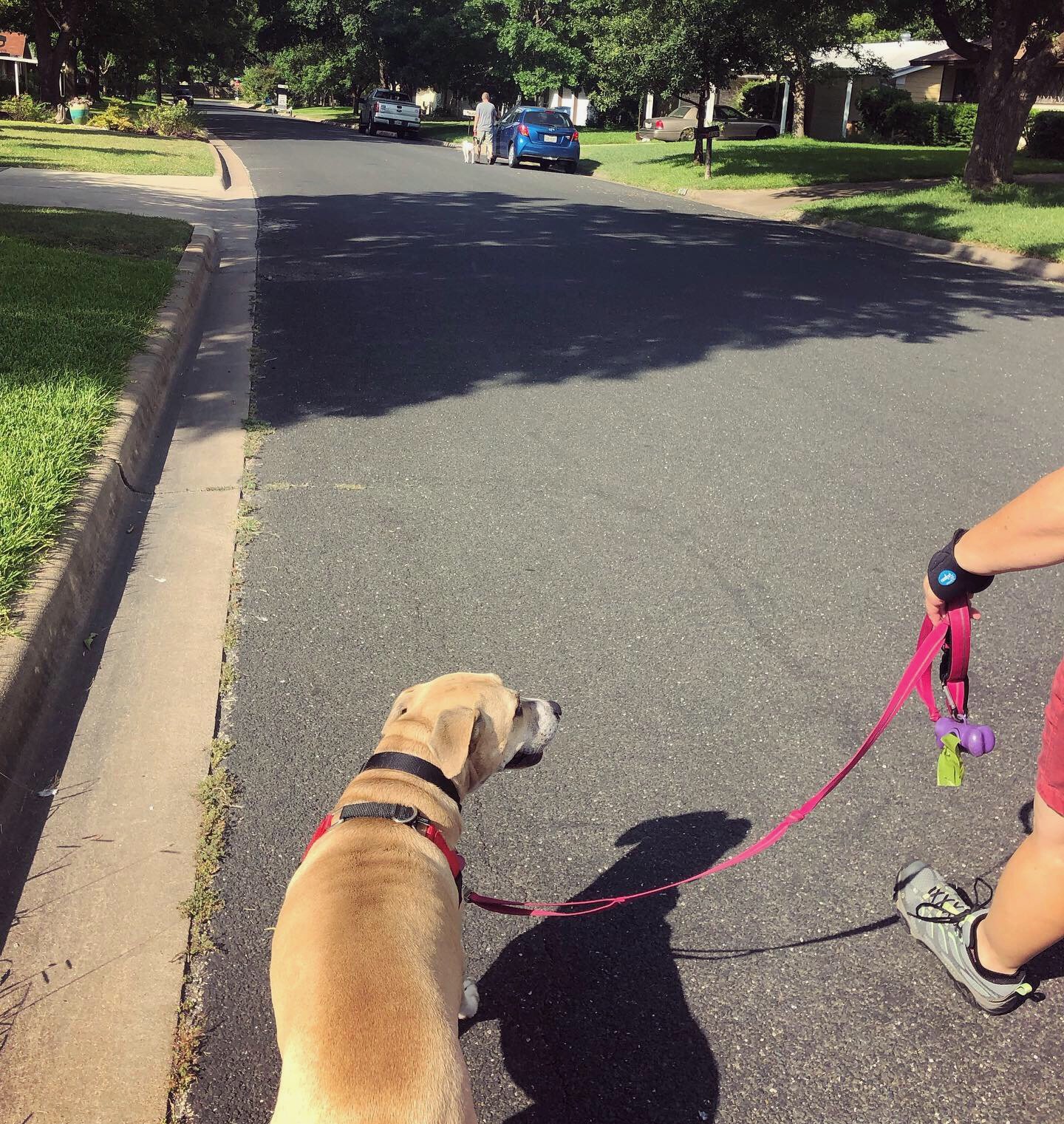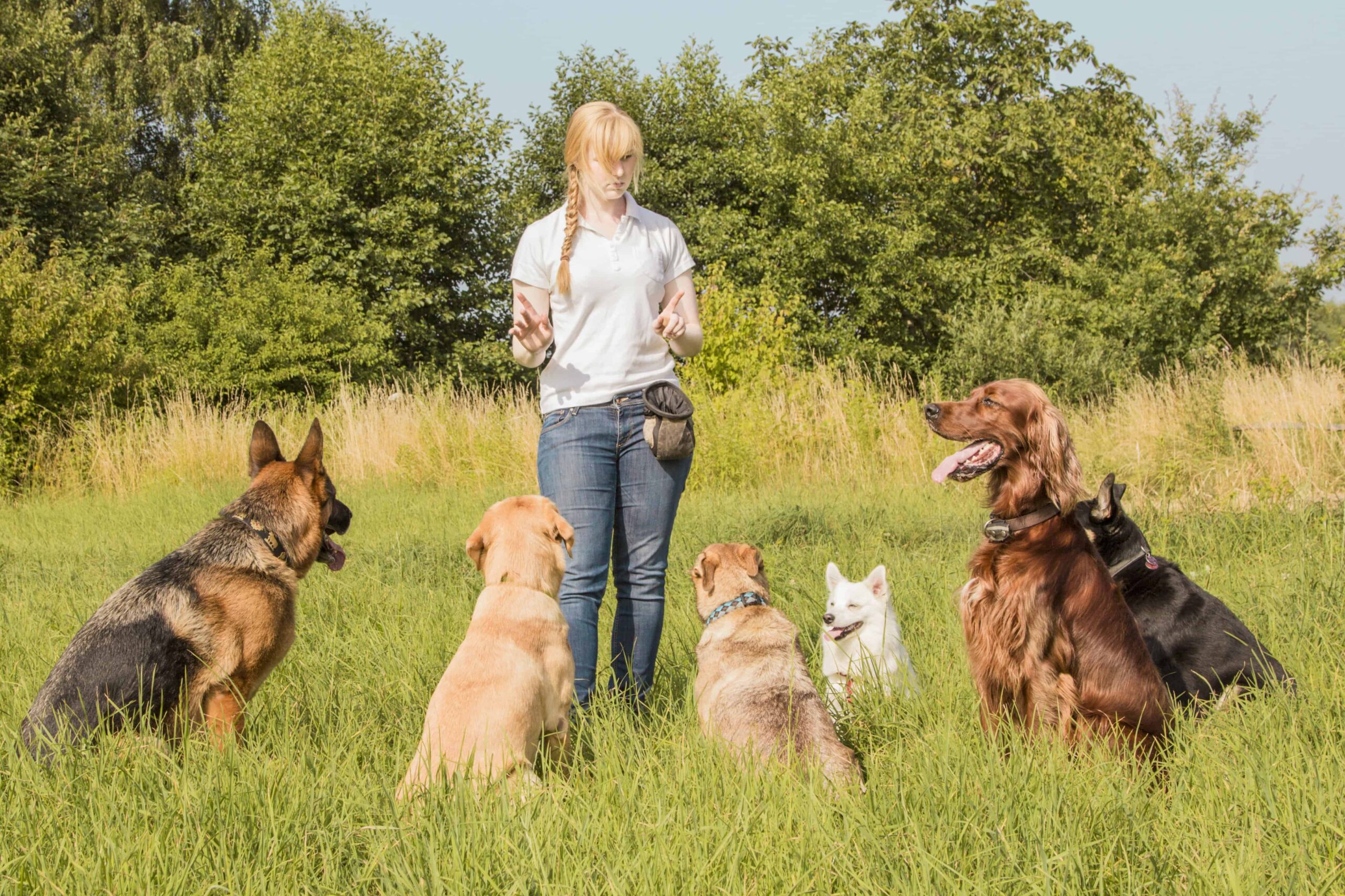Unlock Your Pet dog's Possible: Proven Pet Training Strategies for Success
Reliable dog training is a nuanced process that hinges on comprehending canine habits and using clinically backed strategies. Dog training. By integrating positive reinforcement, establishing clear commands, and prioritizing socialization, canine proprietors can cultivate an effective relationship with their pets. Nevertheless, obstacles commonly arise that need tailored remedies and a patient approach. Discovering these proven approaches discloses not only the capacity for behavioral enhancement however additionally the deeper bond that can be formed between owner and pet. What important methods must be taken into consideration to absolutely open your dog's possibility?
Understanding Pet Actions
Recognizing pet habits is necessary for efficient training and fostering a positive relationship in between canines and their proprietors. A comprehensive grasp of canine body movement, articulations, and social communications is crucial for recognizing their requirements and feelings. Canines communicate mostly through non-verbal signs; for example, a wagging tail might show enjoyment, while pinned ears can signify anxiety or submission.

In addition, environmental elements play a considerable duty in forming a pet dog's behavior. Changes in routine, new environments, or the visibility of unfamiliar individuals can cause stress and anxiety or anxiety in canines. Recognizing these triggers allows owners to mitigate damaging reactions and develop proper training methods.
Ultimately, a deep understanding of dog habits lays the foundation for effective training methods, enhancing both behavior and the overall bond between the dog and its proprietor. dog training charlotte. This understanding is essential for fostering a well-adjusted, satisfied canine buddy
Positive Support Techniques
Effective training relies heavily on positive reinforcement methods, which have been revealed to generate considerable cause shaping wanted habits in pets. This technique entails rewarding a pet dog for showing certain actions, thus raising the chance that these habits will certainly be repeated. Rewards can take different types, including deals with, praise, playthings, or playtime, depending upon what motivates the private pet.

It is necessary to slowly phase out rewards as the pet discovers the behavior, transitioning to periodic support. This method preserves the behavior with time while protecting against reliance on constant incentives. By concentrating on positive support, fitness instructors can cultivate a relying on connection with their dogs, advertising a cooperative and healthy and balanced training atmosphere that enhances total obedience and performance.
Developing Consistent Commands
A basic element of effective pet dog training is the establishment of constant commands. Uniformity in commands is vital for effective communication in between the instructor and the dog. When commands are consistent, dogs discover to associate certain words Check This Out with wanted habits, which increases the training process and boosts understanding.
To establish constant commands, it is essential that all household participants use the very same terms and gestures. If one individual makes use of "sit" while one more claims "rest down," it can create confusion for the pet. Select clear, distinct words for commands and guarantee everybody entailed in the dog's training adheres to these options.
Enhance commands via constant technique, ensuring that the dog receives ample opportunities to respond correctly. When a dog successfully follows a command, immediate favorable support must comply with.
Finally, hold your horses. Developing consistent commands takes time and initiative. With devotion and quality, you click now will certainly assist your canine develop a solid understanding of assumptions, ultimately leading to a mannerly friend.
Socializing and Exposure
Socializing a pet is crucial for cultivating a well-adjusted and positive companion. This procedure includes exposing your pet to a range of environments, individuals, and various other animals to create their social skills and adaptability. Early socializing, ideally in between the ages of three to fourteen weeks, is essential, as it prepares for a pet dog's future behavior.
Throughout socialization, aim to supply positive experiences in various settings, such as parks, active streets, and homes with various other animals. Present your pet dog to various stimulations, including noises, sights, and smells, ensuring that each encounter is fulfilling. This exposure helps minimize fear and stress and anxiety, paving the method for a more durable pet dog.
Engaging in controlled group play sessions with other canines can additionally boost social abilities, teaching your animal proper communications and psychiatric service dog training cost borders. Focusing on socializing will dramatically contribute to your dog's overall happiness and behavior throughout their life.
Conquering Common Educating Obstacles

Canines may battle to concentrate in unfamiliar or hectic setups. Progressively desensitize your canine to interruptions by beginning training in a quiet environment and slowly presenting even more stimulations as they become efficient.
In addition, behavior issues like jumping or extreme barking can end up being frustrating. Address these by teaching alternate habits, such as resting steadly when welcoming visitors. Uniformity and patience are essential; strengthen preferred habits constantly and stay clear of abuse, which can bring about complication.
Last but not least, recognize that each dog is distinct, and training timelines may vary. Tailor your approach to your dog's individual needs, and seek specialist guidance if essential. With willpower and the appropriate approaches, overcoming these obstacles can bring about a trained, delighted canine buddy.
Final Thought
Finally, unlocking a dog's possible demands a detailed approach that incorporates an understanding of canine actions, the application of favorable reinforcement techniques, and the facility of constant commands. Early socialization and exposure to varied atmospheres even more enhance a pet's versatility and confidence. By addressing usual training difficulties with tailored approaches and perseverance, a harmonious and cooperative partnership between dog and trainer can be fostered, inevitably leading to a well-behaved friend capable of growing in different situations.
Reliable canine training is a nuanced procedure that hinges on recognizing canine habits and using clinically backed strategies.Comprehending pet habits is important for reliable training and fostering a favorable relationship in between dogs and their owners.Reliable training relies greatly on positive reinforcement strategies, which have been shown to generate significant outcomes in forming desired habits in dogs. When commands are uniform, canines find out to associate certain words with wanted behaviors, which speeds up the training procedure and improves understanding.
In verdict, unlocking a pet dog's possible necessitates a detailed strategy that incorporates an understanding of canine habits, the application of favorable support strategies, and the establishment of constant commands.